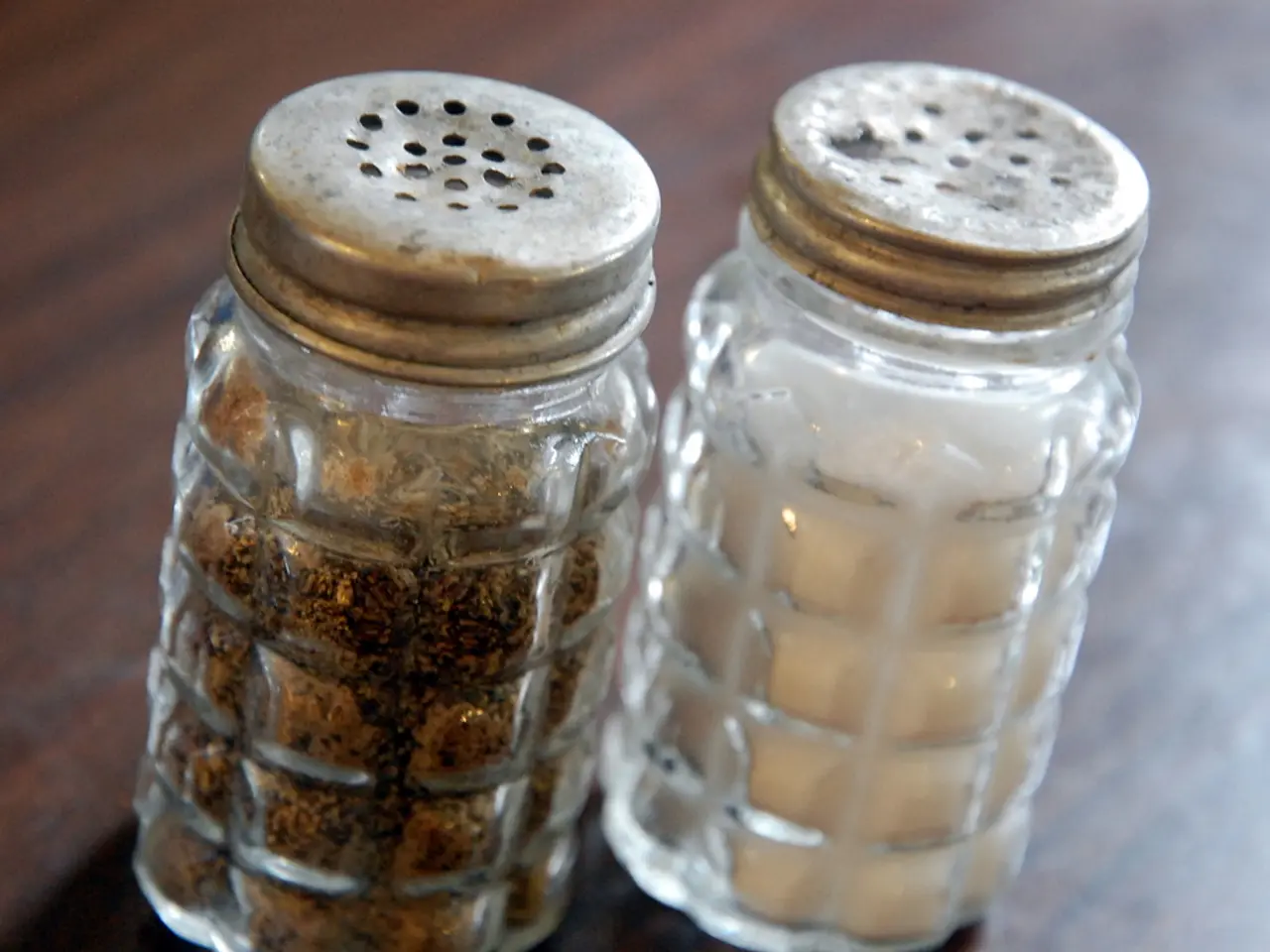Winter stock will be depleted due to this salt, causing lids to explode and cans to end up in the trash.
In the heart of winter, home-preserved foods serve as a delightful reminder of summer's bounty and a way to maintain cherished family traditions. However, the choice of salt for canning and preserving can significantly impact the taste, color, and texture of these preserved delicacies.
Iodized salt, with its additives, can alter the structure of vegetables, fruits, and mushrooms used in canning, potentially leading to spoilage. Using iodized salt or products with additives in canning can result in ruined jars of pickles and marinated foods. On the other hand, coarse, unrefined salt packaged in cardboard boxes or plastic bags, devoid of iodine or anti-caking agents, is suitable for canning and preserving.
Irina Polyanskaya, a home economics expert known for her project "While Husband is at Work," reminds us of the importance of using the correct salt for canning to preserve foods. The incorrect use of salt in canning can lead to unwanted changes in the texture, appearance, taste, and safety of preserved foods.
The best types of salt for canning and home preservation are pickling salt (also known as canning salt or preserving salt) and pure sea salt without anti-caking agents. Pickling salt is the top choice because it is pure sodium chloride and free from additives like iodine or anti-caking agents, which can cause cloudiness or affect texture and flavor during preservation. Its fine granules also dissolve quickly and evenly, making it ideal for brines and pickling solutions.
Kosher salt is often recommended for some canning uses due to its purity and texture, but it can contain anti-caking agents that inhibit fermentation. Therefore, it is good for canning but not suitable for fermenting. Sea salt without additives is also acceptable, provided it does not contain anti-caking agents; it maintains proper flavor and color without unwanted chemical interference.
Avoid salts with iodine or anti-caking agents when pickling or fermenting, as they can negatively impact the microbial activity needed for proper preservation and may alter the final product's taste or appearance. Proper salt concentration and quality are essential: for fermentation, a typical brine is 2% salt by weight relative to vegetables, which promotes a safe acidic environment that prevents spoilage and encourages good bacteria.
In summary, pure pickling salt or additive-free sea salt are best for canning and home preservation due to their purity, neutrality in taste, and positive effects on product safety and quality. Kosher salt can be used for canning but is not recommended for fermentation because of additives that may hinder the process. Store-bought "elite" salts with a rich color and large crystals should be checked for unwanted additives before use in canning and preserving.
Using iodized salt for canning is a common error that can lead to the spoilage of preserved foods. Large letters on a salt package indicating "iodized" should be avoided for canning and pickling, and used only for ready-made dishes and salad seasoning. Iodized salt and expensive products with additives should not be used for canning due to the potential for unwanted reactions. Canning and preserving processes prefer unrefined salt without impurities. Experienced gardeners advise using only unrefined salt without impurities for curing, brining, pickling, and canning.
The use of unrefined salt without additives is what our grandmothers used for preserving foods through the winter without spoilage. So, as you prepare for the winter months, remember to choose your salt wisely to ensure your home-preserved foods remain delicious and safe.
- In the realm of canning and preservation, unrefined salt without additives, like pickling salt or additive-free sea salt, is recommended due to their purity, neutral taste, and beneficial impact on product safety and quality.
- Home-and-wellness enthusiasts and canners should be mindful of iodized salt or products with additives, as their usage in canning can potentially lead to spoilage of jars of pickles and marinated foods, and unwanted changes in the texture, appearance, taste, and safety of preserved foods.







